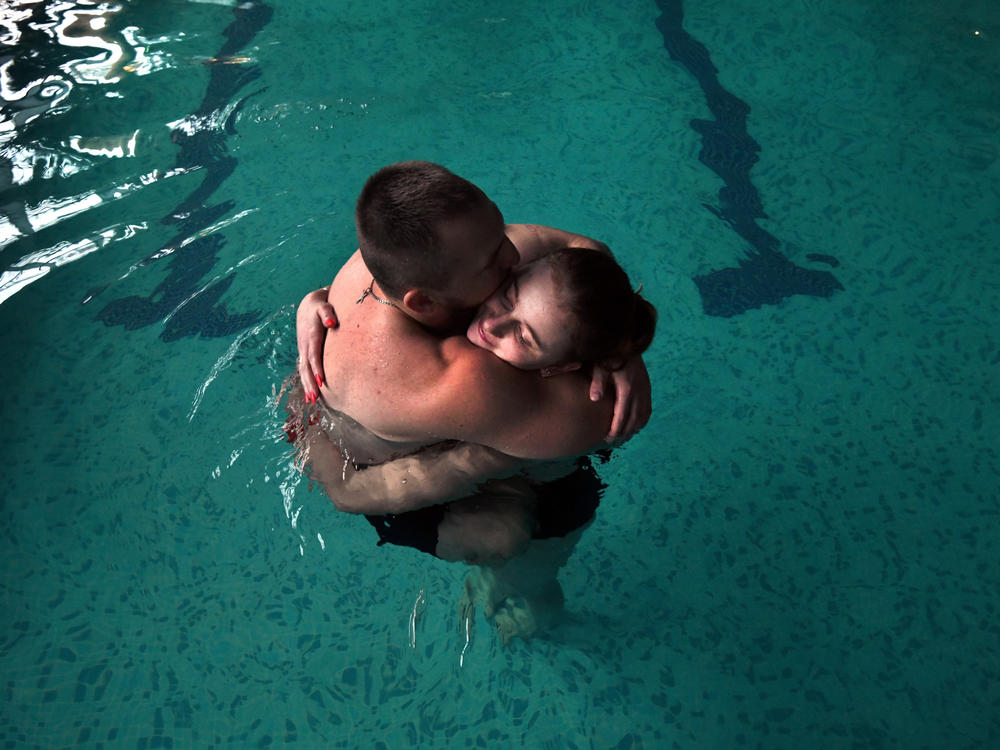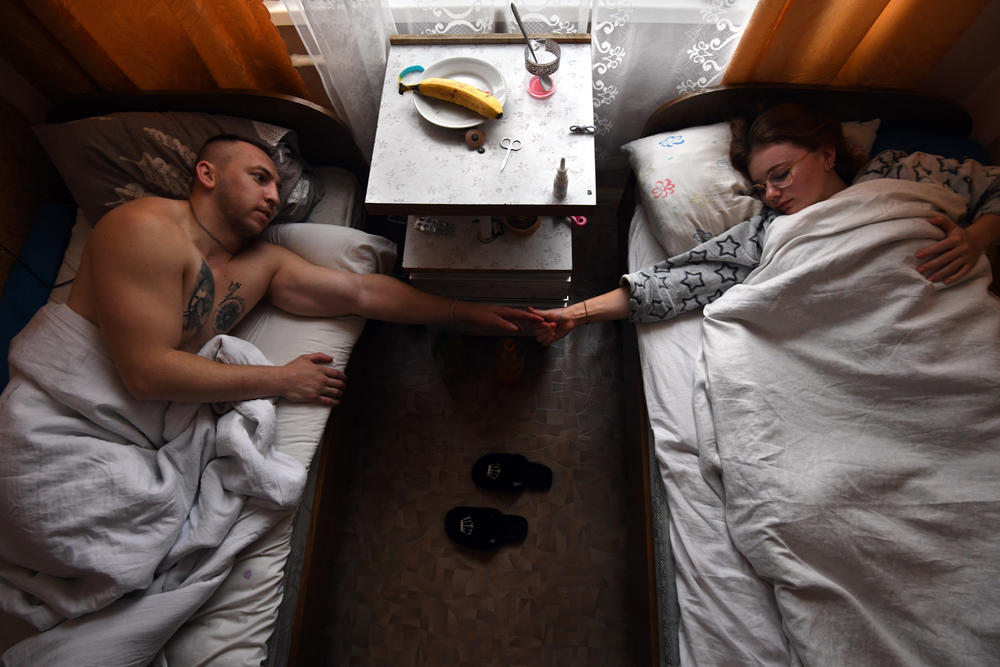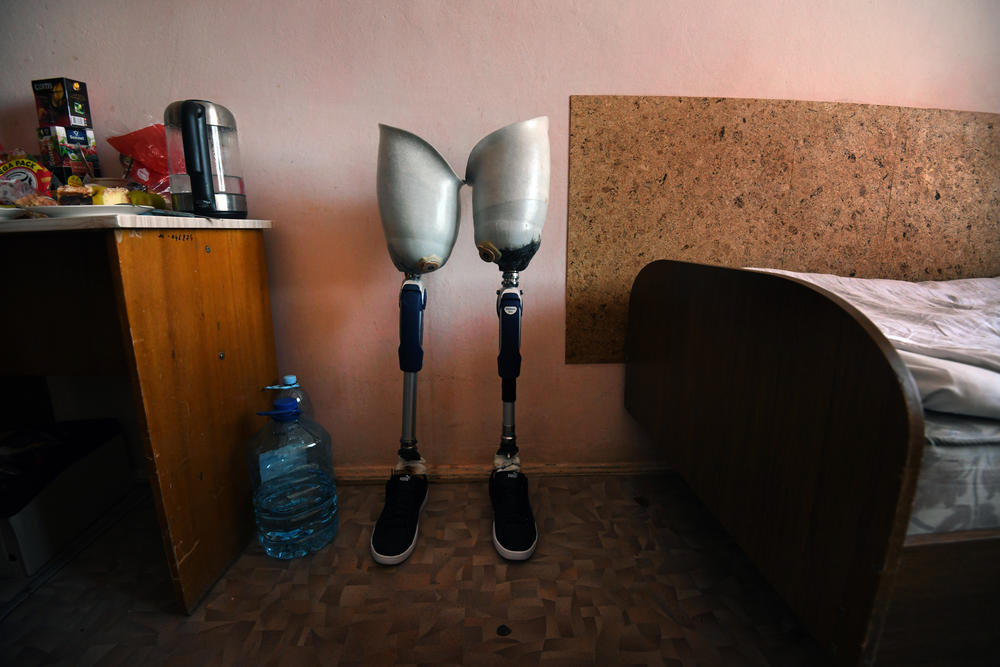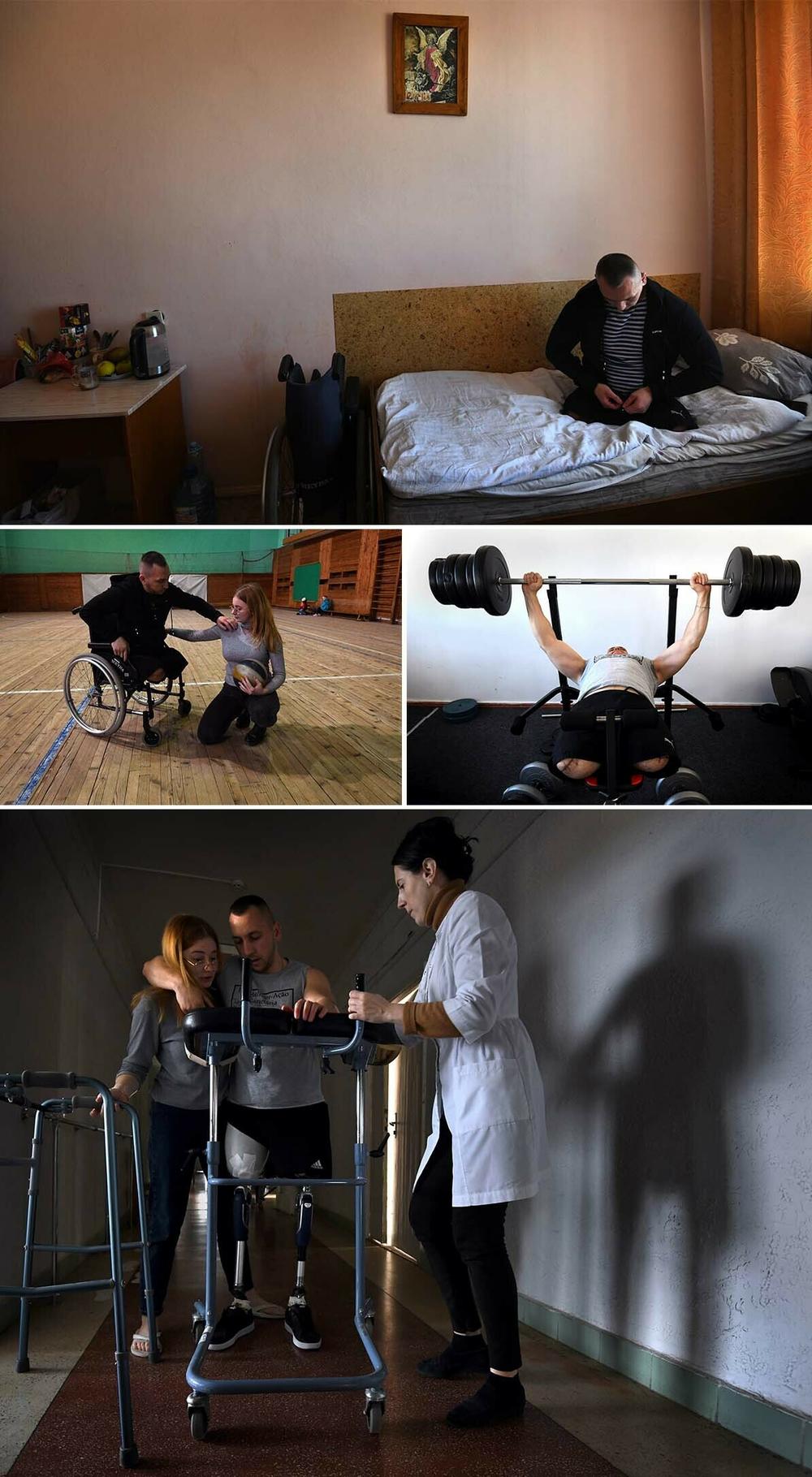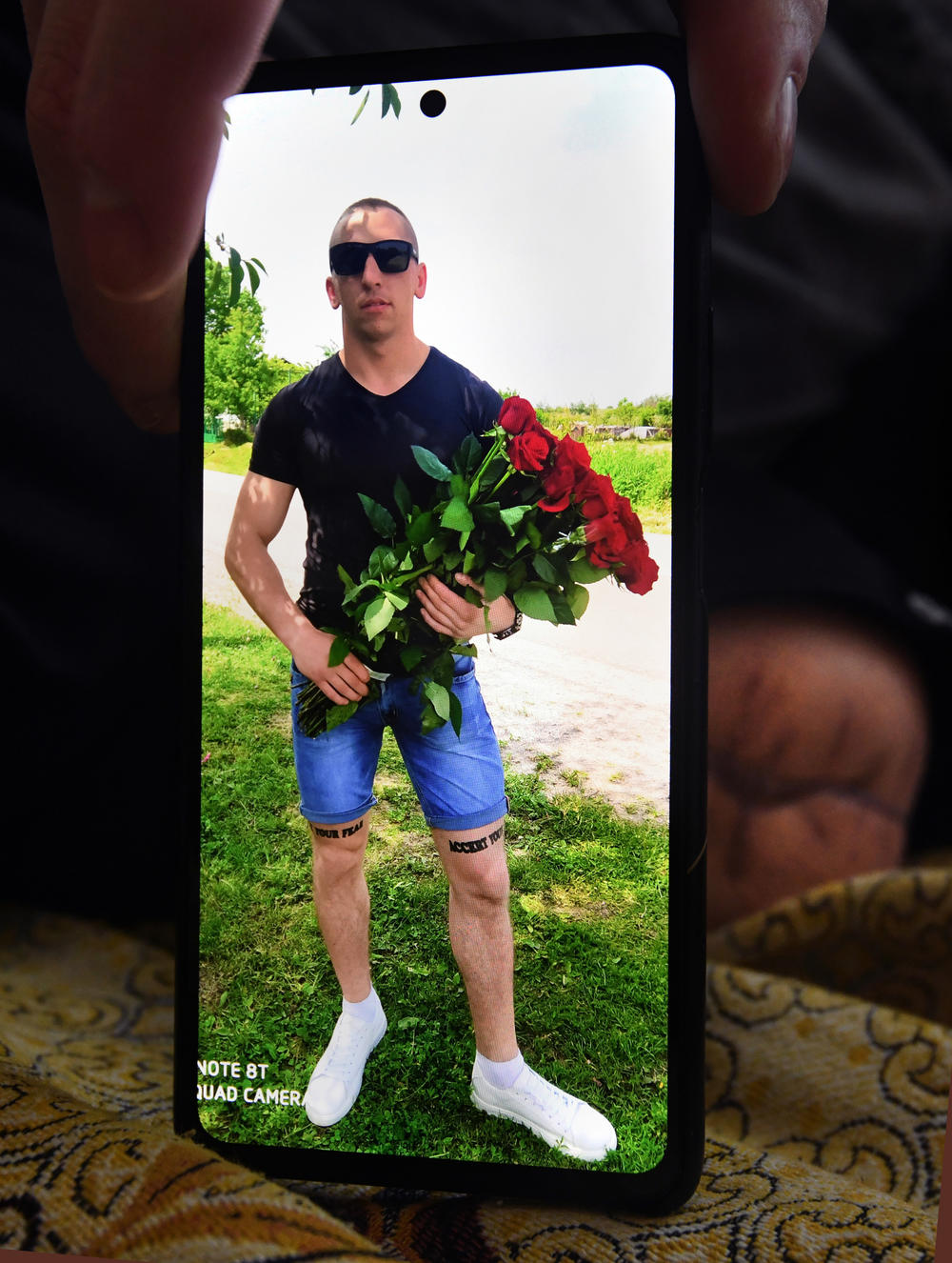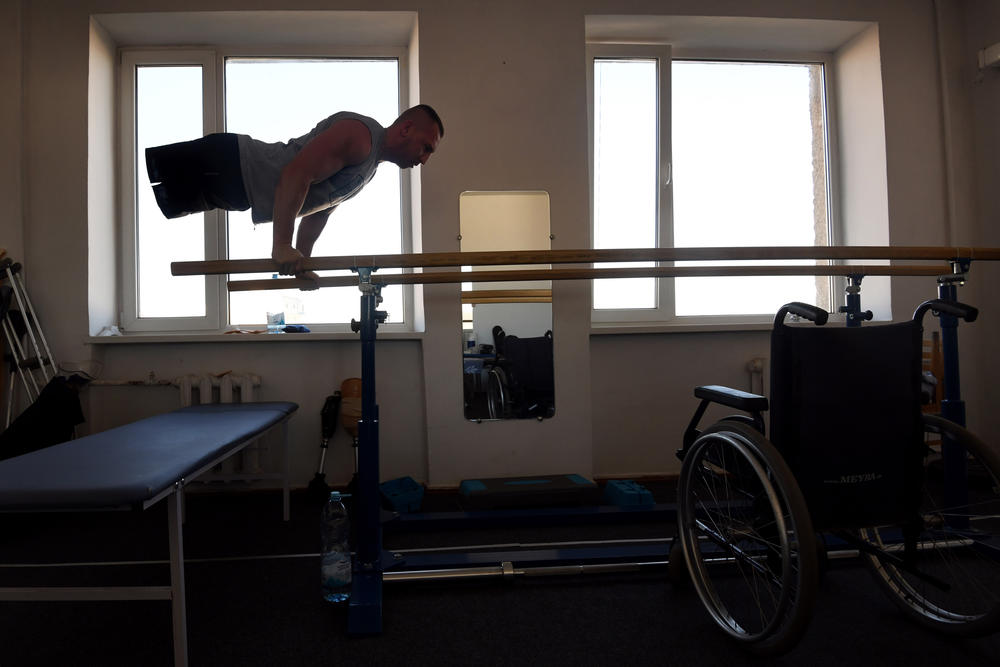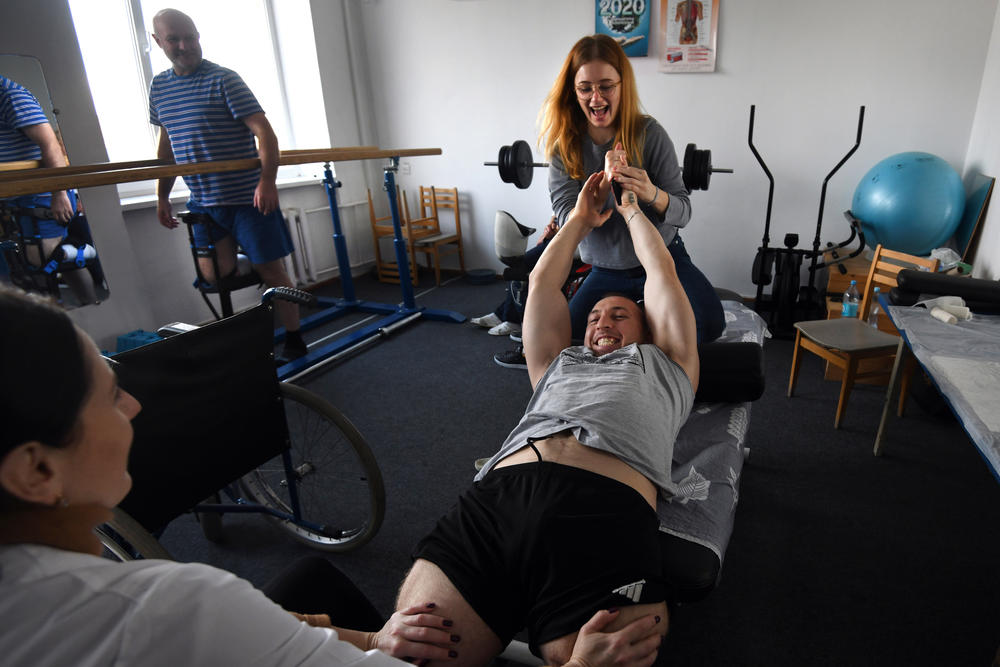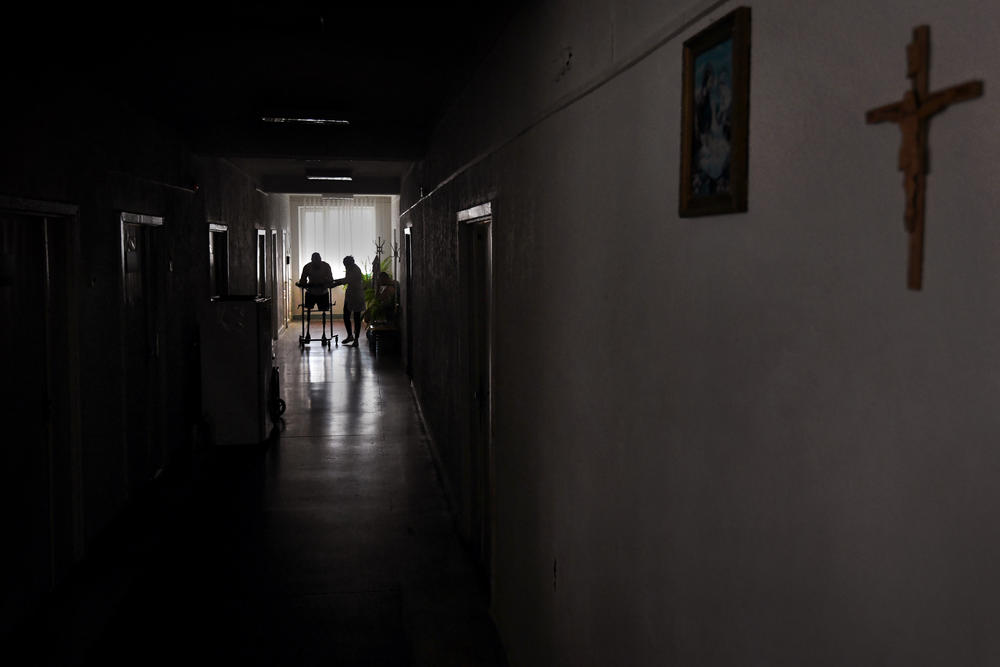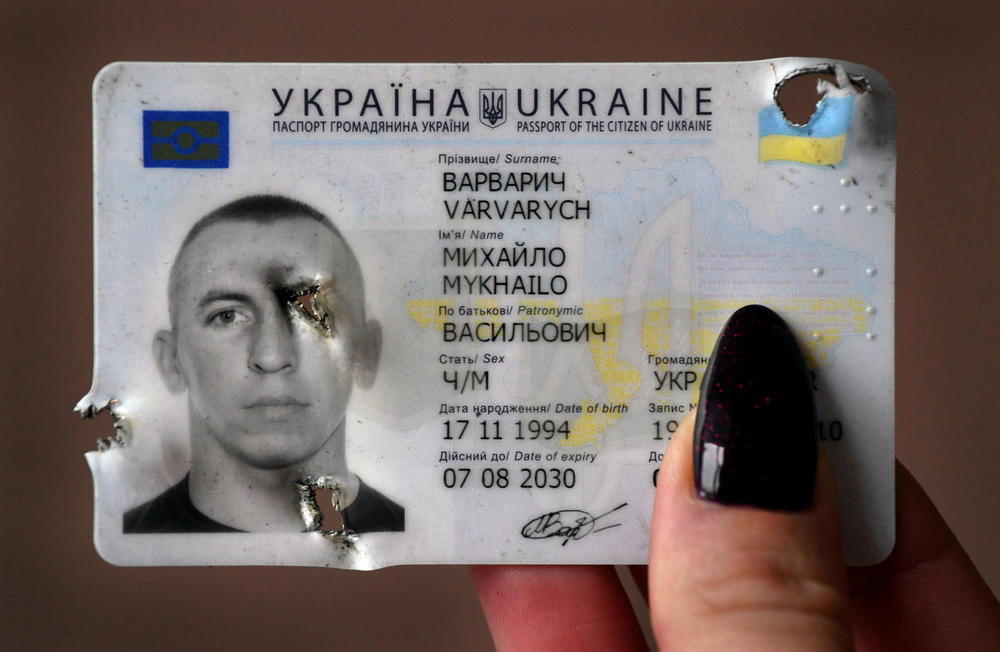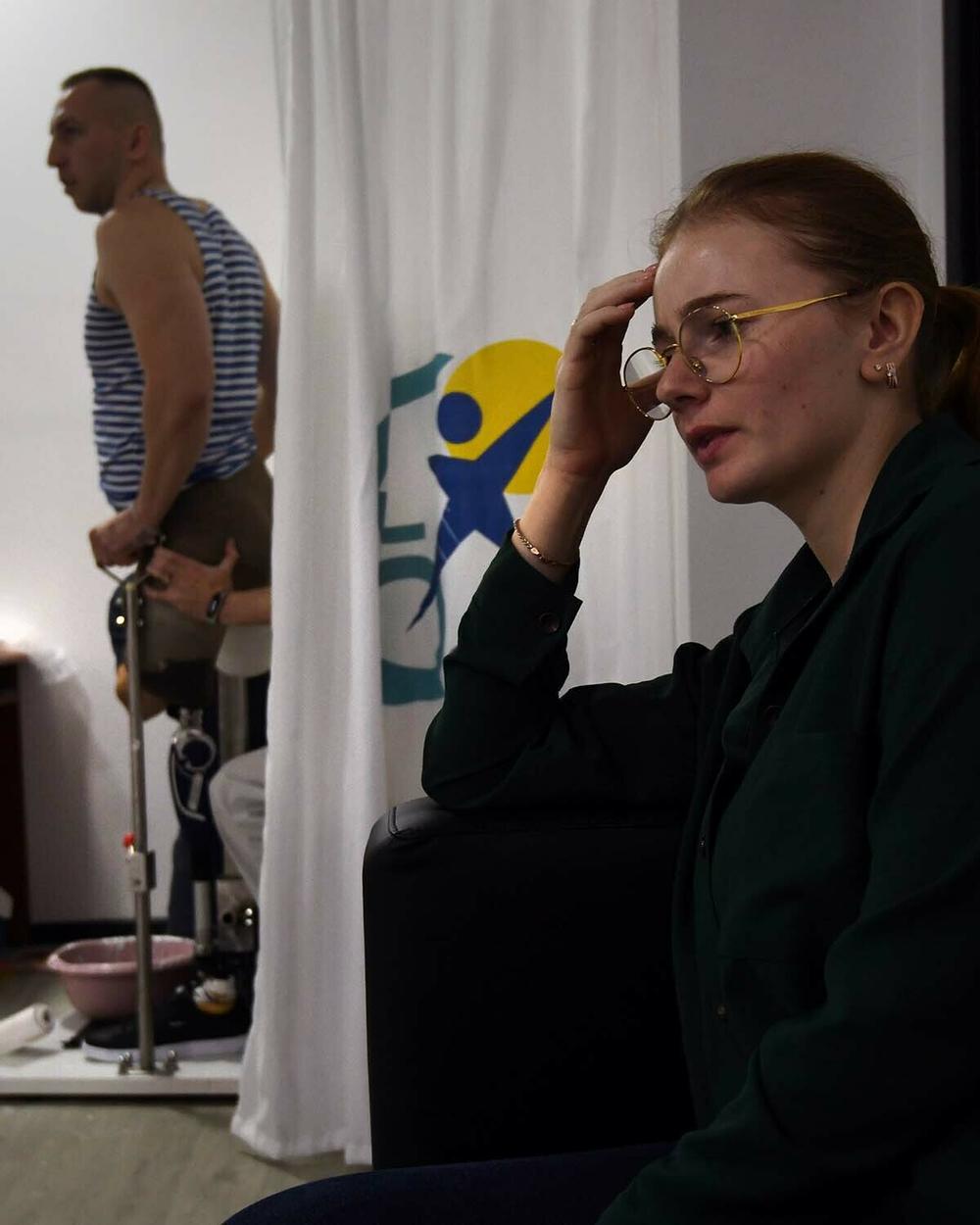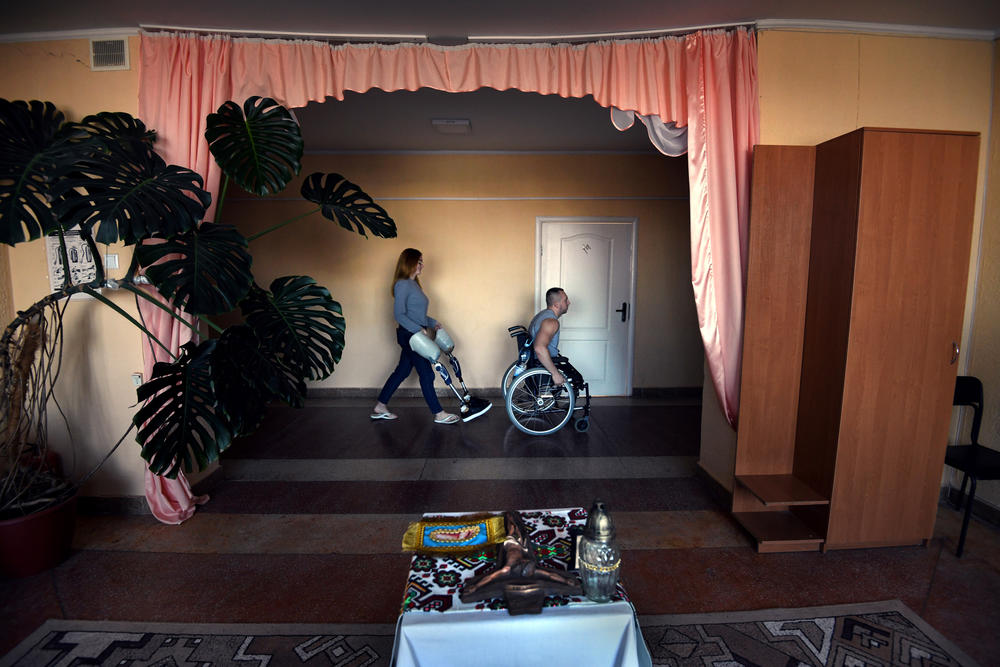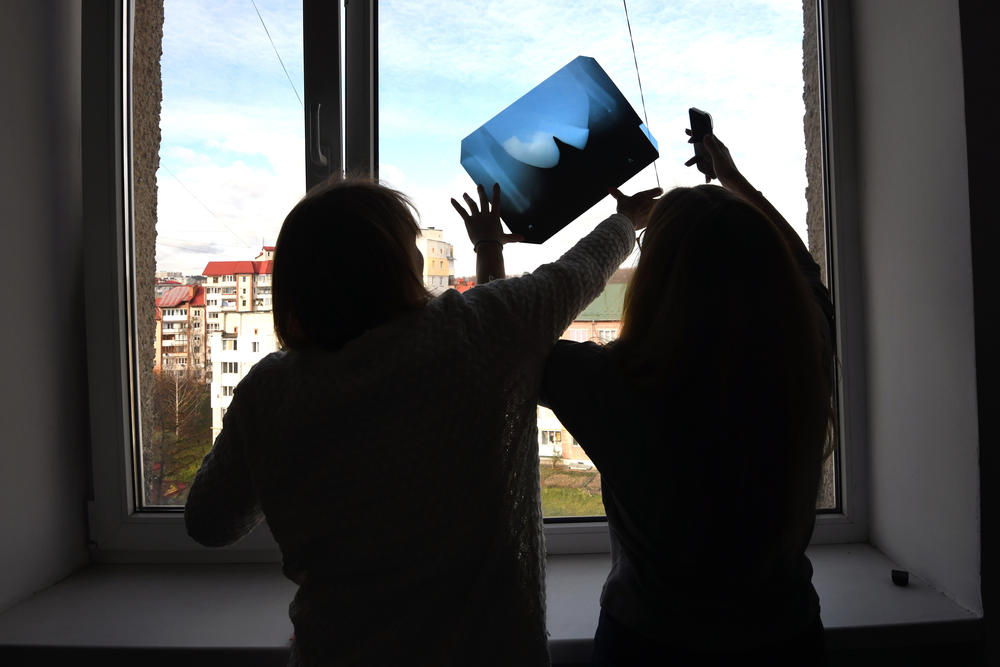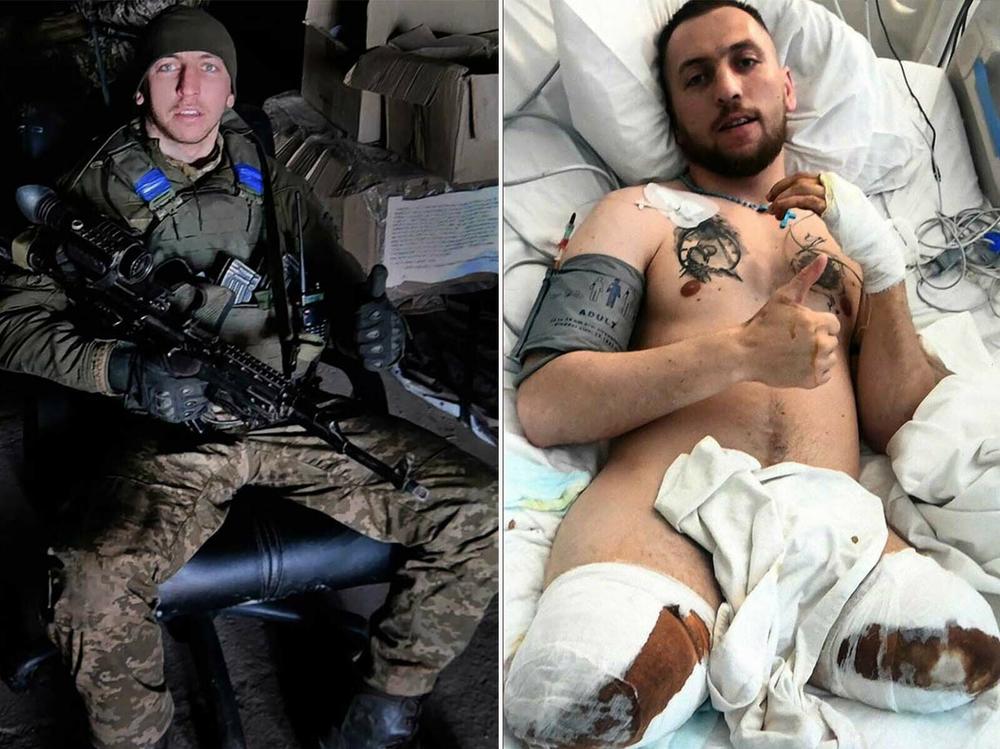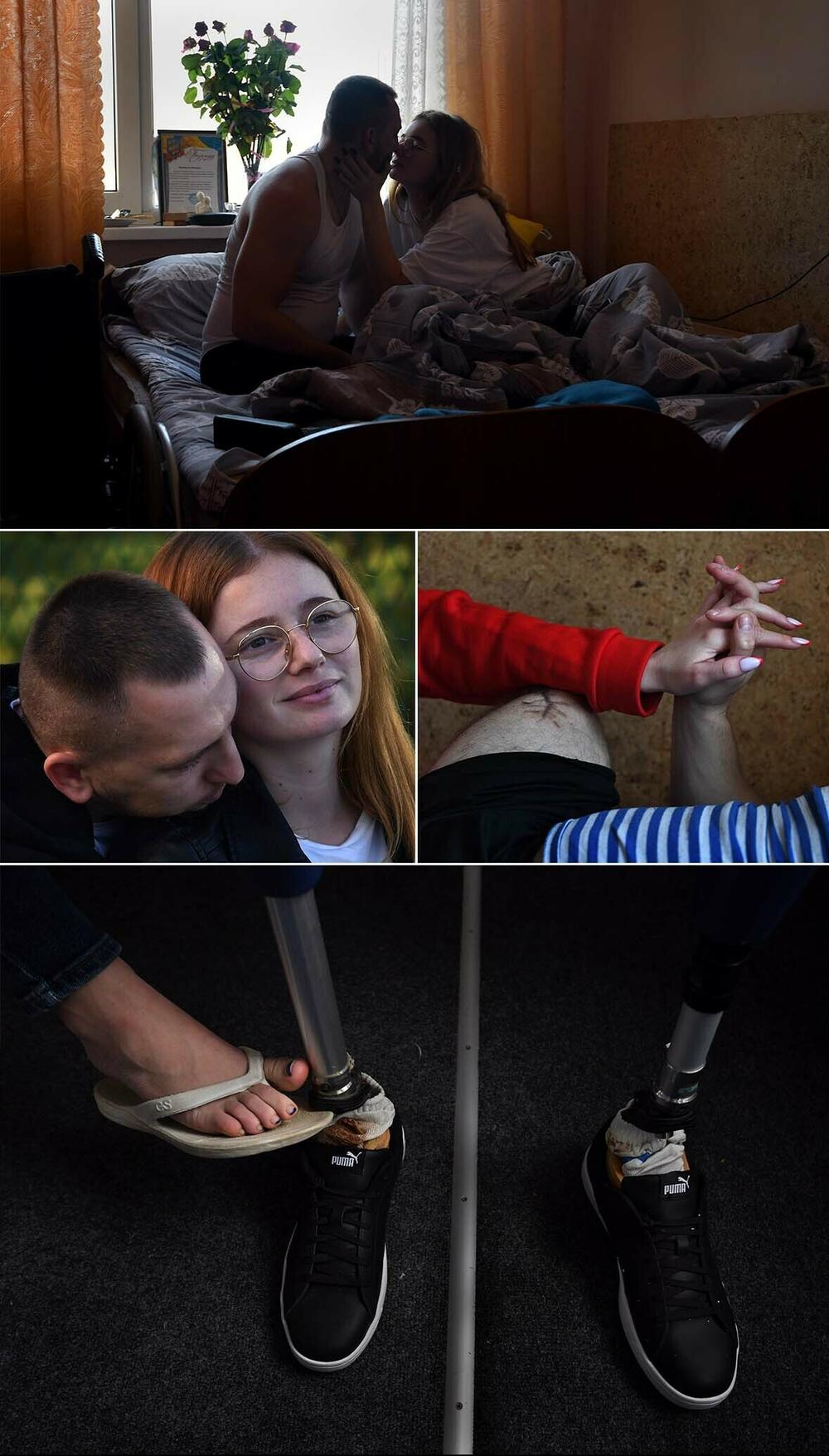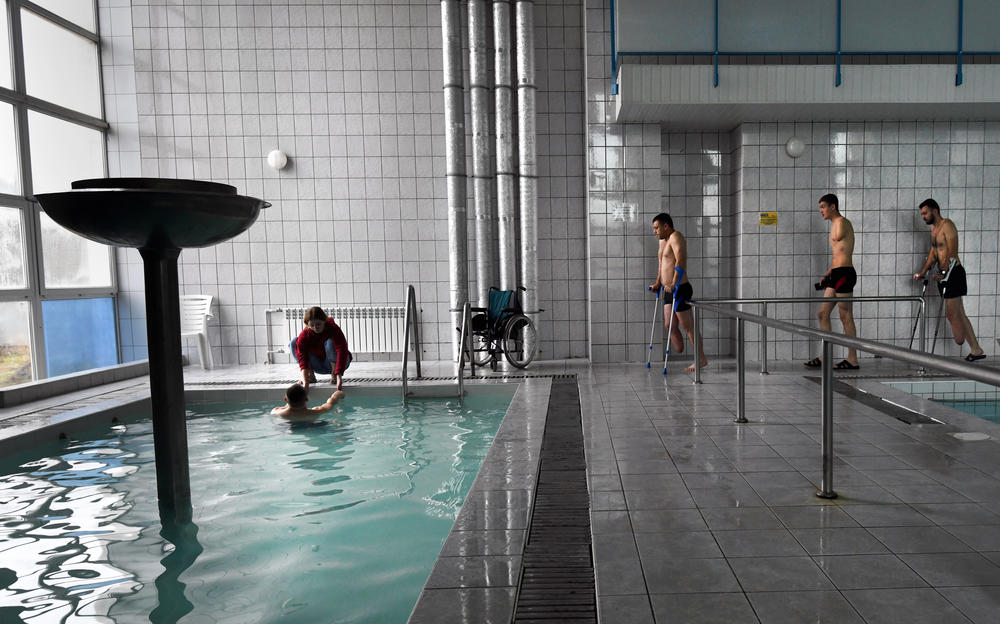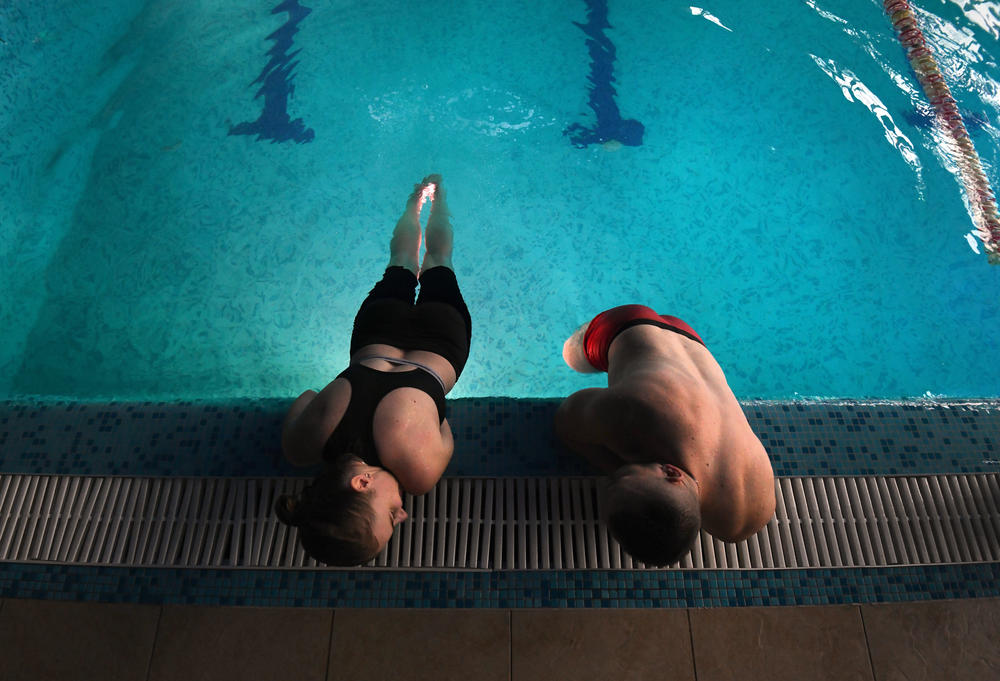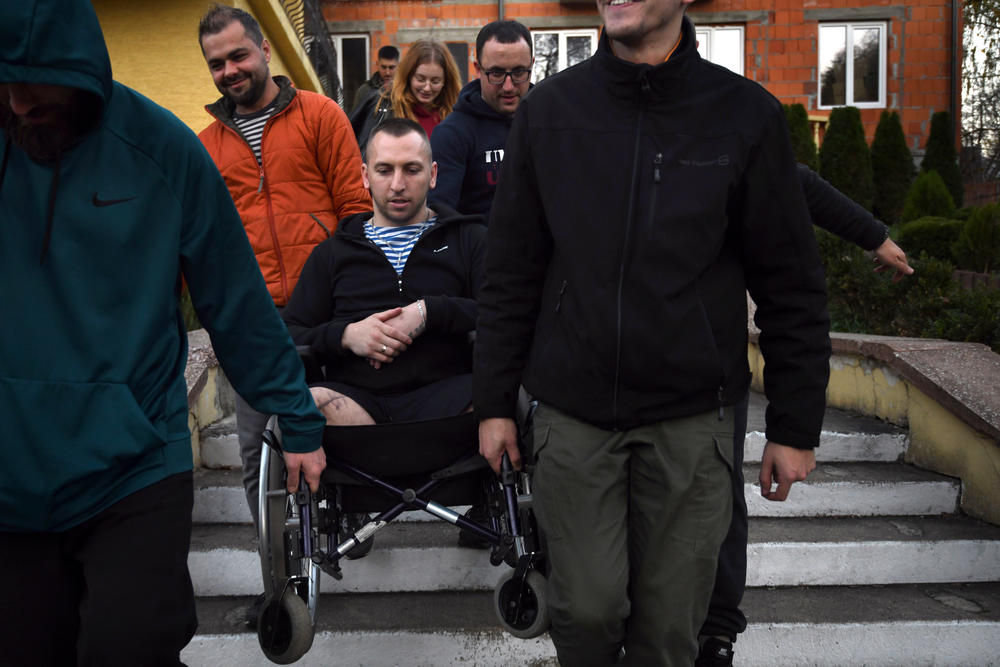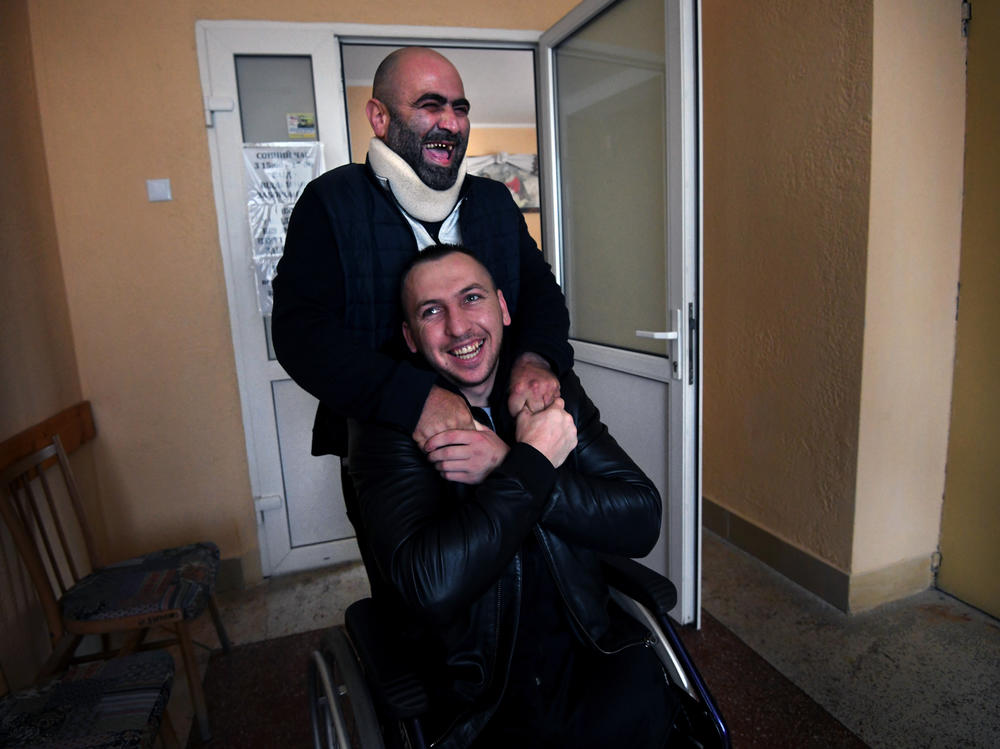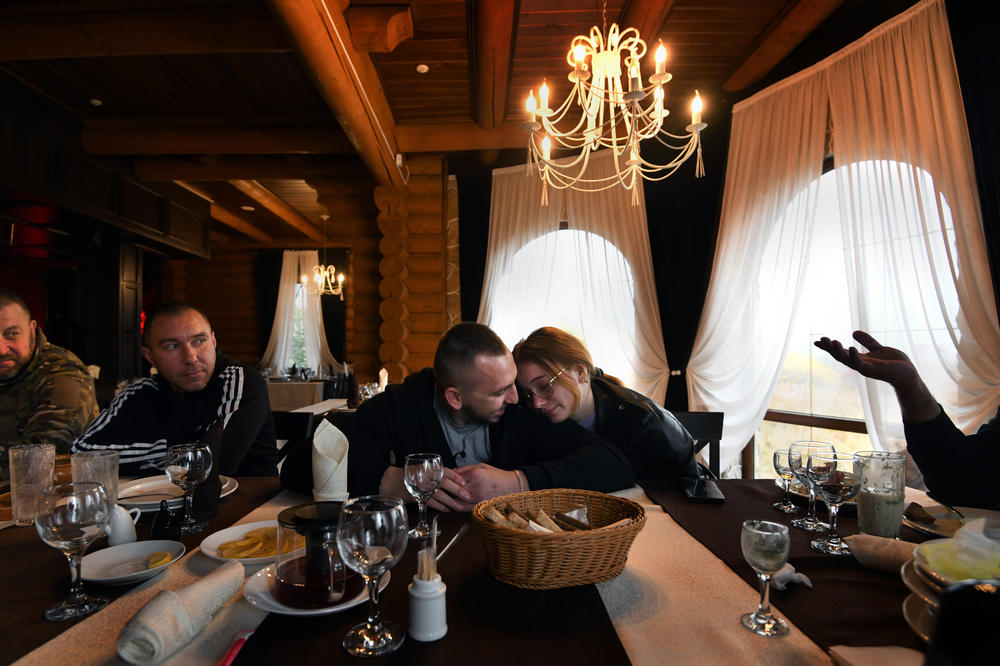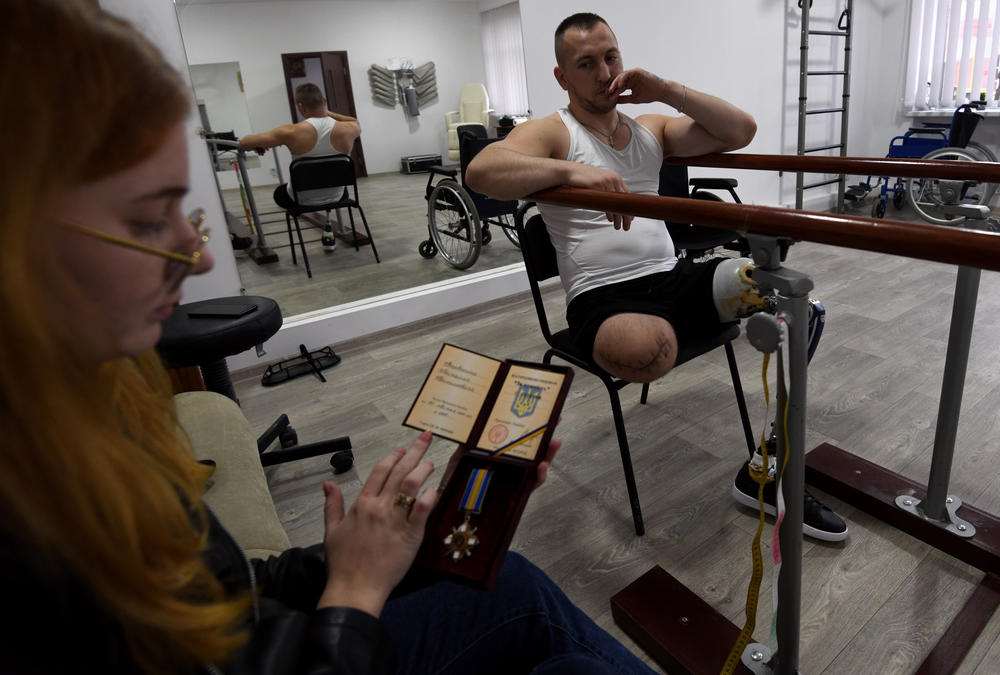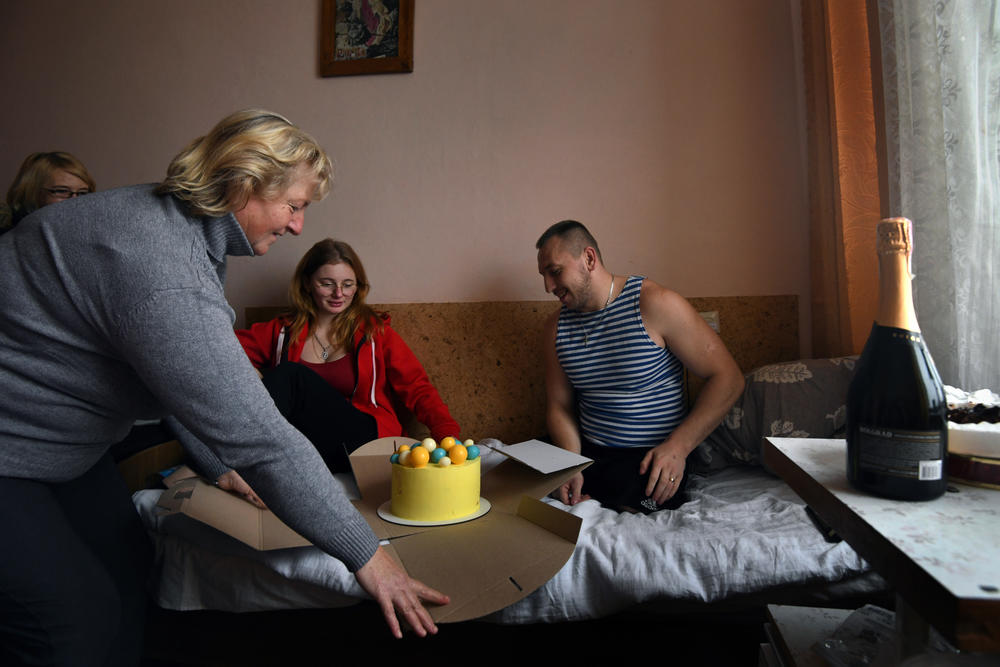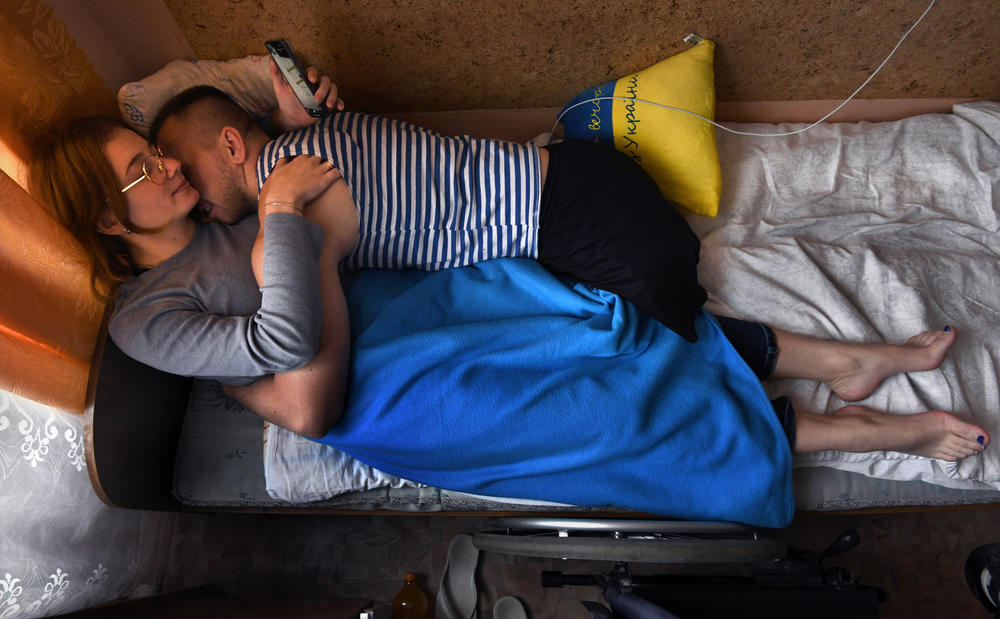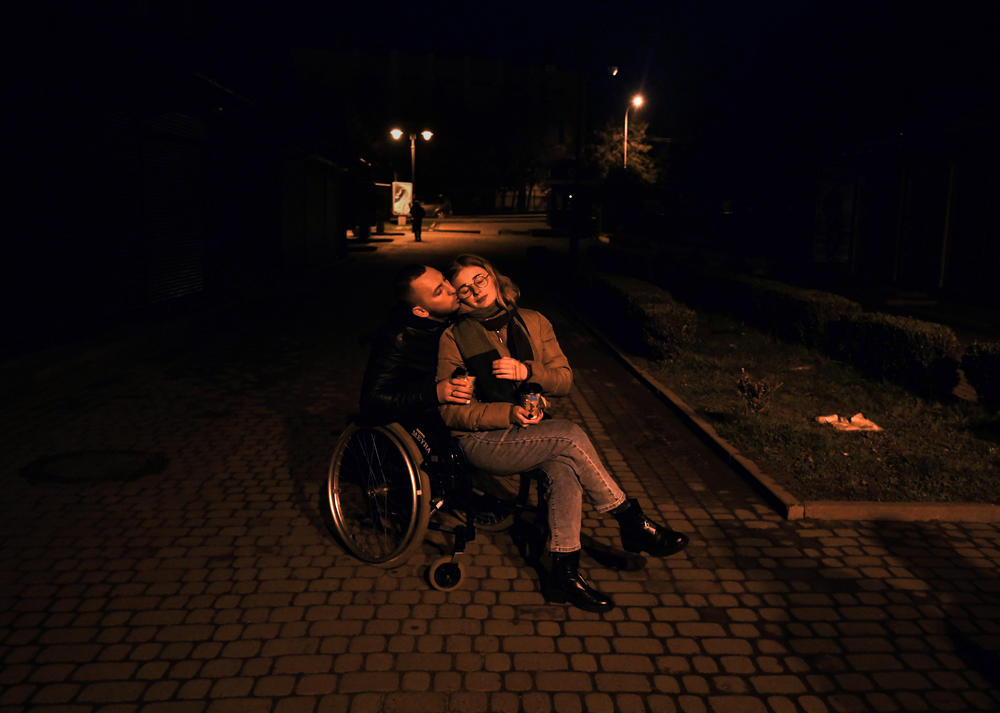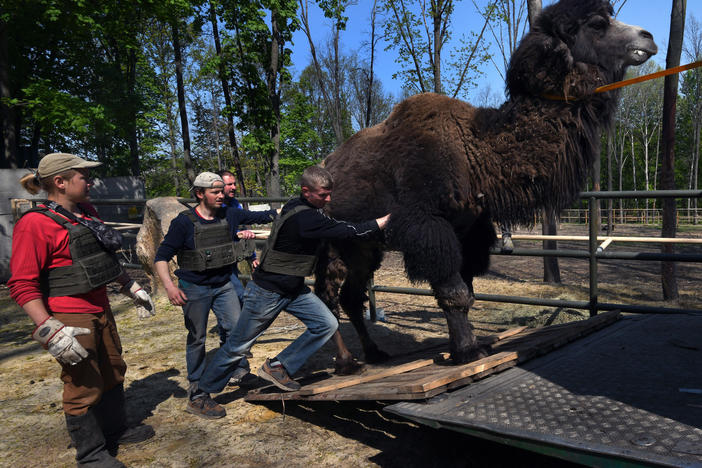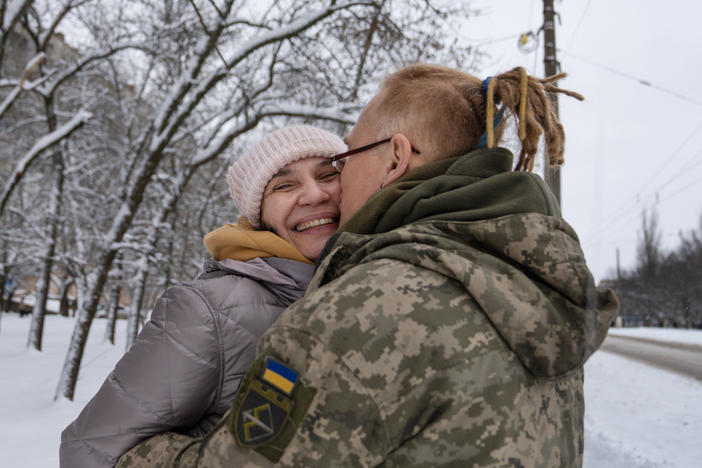Football Fridays Game of the week | Playoffs Rd 2- Lowndes at Buford - At 7:30 P.M.
Section Branding
Header Content
He lost his legs fighting for Ukraine. But this story is about love through adversity
Primary Content
Sgt. Mykhailo (Misha) Varvarych, 28, a commander with Ukraine's 80th Airborne Assault Brigade, and his fiancée, Iryna (Ira) Botvynska, 19, navigate an altered destiny after he lost both legs earlier this year while fighting in Luhansk during Russia's invasion of Ukraine. For better or worse, this is a Ukrainian love story.
Since June, they have been living in a tiny room at the Truskavets City Hospital near Lviv, in western Ukraine, where a growing legion of Ukraine's war wounded have come to seek healing and rehabilitation. More than 150 amputees have been treated so far at this facility alone. They lean on each other and face their drastically changed circumstances with dry wit, tenacity and grace.
In an age-old adage, love transcends adversity. At a tender age, Ira was forced to mature quickly, offering unconditional love and support to her man. They traverse obstacles and navigate a new terrain in this altered reality, while still savoring joy with playful, affectionate abandon. She plays footsie with his prosthetic leg, wipes his brow, endures his endless passion for video games and endlessly kisses his lips.
Their unflinching romance speaks not of life interrupted, but rather adapted and embraced.
In a country with a shattered economy, it is a challenge for Ukrainian hospitals, also under attack and understaffed, to provide adequate care amid the surge in demand. There is no concise count of the number of amputees, but the need grows daily. Due to a lack of skilled prosthetists, Misha must travel 90 minutes each way from the Truskavets City Hospital to a clinic in Lviv for even minor adjustments. Eager to move forward, his biggest frustration is losing the time he could be spending on his painfully slow rehab.
Many amputees risk falling into depression, and the staff in Truskavets also work through patients' emotional trauma, but Misha displays not an ounce of self-pity (or self-consciousness) about his appearance.
His ammunition is humor — at times the self-deprecating, dark kind popular among those who've served in the military. When asked for his weight and height, he quips, "With or without legs?" He was once a bodybuilder and still proudly shows off his physique during his daily workouts. "We should be happy and live with ourselves and not care about anyone else's opinion," he says.
His positive outlook is inspiring to medical staff and fellow amputees on this journey. They are quickly enchanted by Misha and Ira's enduring love story.
"I was in love with his legs, especially his tattoos," Ira says wistfully. The tattoos above his knees read: "Face your fear. Accept your war."
At the beginning of the year, Misha decided that he wanted to leave the army and start building a family. He was to be discharged the day after Russia launched its full-scale invasion, on Feb. 24. With the renewed hostilities underway, he joined his unit, leaving Ira behind at the apartment in Lviv, which they'd rented just five days before destiny intervened.
Nearly three months later, on Sunday, May 29, Misha was on patrol as part of a combat mission in the community of Bilohorivka, in Ukraine's eastern Luhansk region, when an anti-personnel mine ripped apart both of his legs. He says he knew immediately that he would lose them. It took over four hours to evacuate his patrol, and one of his comrades didn't survive the journey. Misha was carried by six people — as Russians fired at their road the entire way — a mile and a half to a hospital, where he had to be resuscitated three times. The tourniquets that saved him from bleeding out also starved his legs, which had to be amputated at the hospital.
On June 5, Misha returned to Ira, where he began to face the profound new battle of walking again. He says he's lost track of the number of surgeries he's undergone — 18? Maybe 19. As his cartilage continues to grow, so will that number. But he treats the amputations as an ordinary disease that can be cured and is temporary. In a poignant moment at the orthopedic hospital in Lviv, members of his unit — including one who was also injured that fateful day in May — award him a Medal for Courage.
Ira adjusts to a daily routine that is so different than what the couple had imagined for themselves. Misha wanted to be a gym coach; she, a manicurist. "I'm used to it. It is what it is," she says. "With support, you can go through any hell." She never for a moment doubted her commitment to him. Her love is unconditional, but she explains it has also hard for her:
"When you are a caregiver, you also need the words of cheering."
They explain how most couples would get on each other's nerves while living in such a small space for over six months, 24/7. "You should see us fight — like cats and dogs," Misha says with a laugh. Ira clarifies: "I love everything about him, but sometimes I want to choke him." When she is visibly angry and distant some days, he has learned to acquiesce. Eventually, she forgives.
They met in an online chat room a year and a half ago but told everyone they found each other in a park. She was young and initially hid the relationship from her parents. For the first six months, they communicated only online and by phone, becoming good friends before actually dating.
Before the war, they say, they never drank or went to nightclubs, preferring quiet moments at home. Ira says she's nostalgic for their walks in Rivne, a city in northwestern Ukraine. Now, their walks consist of her pushing a wheelchair and occasionally resting on his lap. They never danced together before the war, but Misha says with a chuckle that they never really got out of bed, either.
"I felt comfortable with Ira from the very beginning," Misha says. "I could tell her anything. We could talk for hours. She became a friend and then a girlfriend."
They both believe marriage itself is more important than a big wedding, but someday plan to get that piece of paper. For all intents and purposes, they feel married — wearing rings after a mutual decision to spend their lives together, rather than a proposal. "It's a good thing," Misha jokes. "I can't get down on one knee now."
At their first in-person meeting, his jaw was wired shut after he was involved in a fight in Odesa.
"If she can accept me with all my scars, then she will accept me in every way," he thought at the time — a prophesy that proved accurate. Their first kiss? "Marvelous," he says, even with two seams holding his mouth together.
On the day he patrolled Bilohorivka, shrapnel pierced the contents of his pockets and Ira shows his ID card with an eerie hole where his eye should be. But Misha misses the excitement — the life-and-death adrenaline — that comes with fighting in a war. He felt a purpose, fighting for his country. "Look at this grayness — weekdays of nothing," he says of life away from the front lines. "There, it was real life." During the frequent sounding of the Truskavets' air raid sirens, he yearningly looks at photos of himself in his battle fatigues.
"The war is everything you were dreaming as kid — a car to ride without rules, you can fire a gun, make friends," he explains. "What can be better than to wake up in middle of the night to bombs?" And the dark humor surfaces.
Misha embodies a common refrain with most soldiers — given the choice, he says he would return to fight. Even if he had at least one leg or a knee, he insists he would go back. Ira, on the other hand, exclaims, "No, no, no, no! I already told him I would break his arms to not let him go again."
When Misha first left for war, Ira's mother urged her to leave Ukraine.
"How could I?" she countered. "My man is here fighting."
Her family eventually came around.
Ira says she never thinks about religion except on Easter, but when Misha was on the front lines, she says she prayed every night while embracing one of his T-shirts that still carried his smell. Knowing he loves red cats, she found a tiny orange kitten to sleep with for comfort. She told herself all would be well but constantly worried. She never imagined what was to come.
They kept in touch by video chat. The call Misha made to her after he was injured, though, was a defining moment.
"I have two news for you," Misha told her. "Good one is I'm alive. Second, they cut my legs." She thought he was joking. Then she fell into shock and wept.
Misha speaks of the phantom pain he experienced the first two months after the incident. One night he awoke, writhing in pain, trying to move legs that weren't there anymore.
"Your brain doesn't understand what happened," he says. "You're always moving legs out of the way then you realized you no longer have legs."
He eventually trained his brain to accept his new reality. He doesn't believe he suffers from PTSD, but does struggle to sleep and now takes medication. Insomnia wasn't a problem before the horrors of war became an unwelcome resident in his brain.
Conversation turns serious when Russian President Vladimir Putin's name comes up. Misha, the warrior, talks with benevolence. Ira says she wants to murder the Russian ruler.
Misha declares calmly, "I am such a person that I do not wish harm on others. In general, evil bypasses me ... If Putin dies, nothing changes — he just gives orders; millions of douchebags obey them."
But Ira forcefully declares, "If he was sitting on the porch like you, I would kill him — strangle him? I don't know how, exactly, but I would definitely find a way to kill him.
"I was full of hate from Day 1 as lots of people and soldiers died. I wanted to rip these Russians for what they've done."
What does Misha believe could bring an end to the war? "Definitely no negotiations — no steps back, because people died and made so many sacrifices. Even if there is a pause now, Russians will attack again. Only victory to the end."
He believes Russia's citizens are lost sheep who buy into their government's propaganda. "They sit at home, drinking vodka and listening to propaganda on TV and think Russia is best and all others are evil.
"They live in a barrel of s*** but believe it's a better barrel."
His thoughts on the allegations of war crimes and other atrocities committed by Russian soldiers across Ukraine: "Everyone has a conscience and knows exactly what they are doing. They will receive their due punishment."
Misha and Ira are not merely existing in the aftermath of his deployment, though; they are living their lives: volleyball games, weekend trips to the mountains, dinners made more romantic as they tenderly feed each other by the candlelight made necessary by the blackouts caused by Russia's shelling of Ukraine's electrical infrastructure.
They attend frequent therapeutic swimming activities — freed from the confines of his wheelchair, they move together fluidly, as one body.
And they are grateful for every moment they spend together. He made it back from the front line to her arms — alive.
Is she proud of him? Yes.
What do they like to do? Sex.
Their plans for their future? To build a house to live in. To have children. Possibly to work with others who have lost their limbs.
On Nov. 17, family and friends piled into the tiny room at Truscavets to celebrate Misha's 28th birthday. His mother brought a cake decorated in the colors of Ukraine's flag, and schoolchildren sent drawings they'd made as gifts. He blew out a candle (18 was the only one Ira could find — it is, of course, still wartime). His wish? "I have everything I want. Just need legs. Maybe a car and a house would be OK, too!"
Misha has no fear of death and believes destiny will decide his fate. He believes life still has plans for him since he could have died 100 times already. He still has some mission. While not religious, he thinks reincarnation is possible — perhaps he was a very important person in another lifetime, but there is little chance he and Ira knew each other back then, since Ira was not so notable, he jokes.
Not so funny was the chilling premonition he had last year that the war started, soldiers in his battalion died in shelling and he lost his legs. Yet he has no regrets and would do it again — even knowing the dire outcome.
The war has changed them — in some ways for the better. Ira believes it transformed her perspective.
"I always thought I was egotistical, but now, not at all," she says. "I changed my life goals — how can we complain about living without electricity when we think of our boys in the trenches, cold?" She felt guilty and organized aid in her village for soldiers. When she packed an emergency bag and realized all her life was in that bag, it shifted her perspective from a focus on material things to the knowledge that human lives are all that matter.
With help from a fundraiser created by Irina Vashchuk Discipio for Revived Soldiers Ukraine, they plan travel to the U.S., where Misha will receive state-of-the-art prosthetics.
For now, they kiss and cuddle and hold onto hope. In sickness and in health.
"God has plans for me," Misha states confidently. "I need bionic legs to be able to lift my child off the ground in the future."
Copyright 2022 NPR. To see more, visit https://www.npr.org.
Bottom Content

